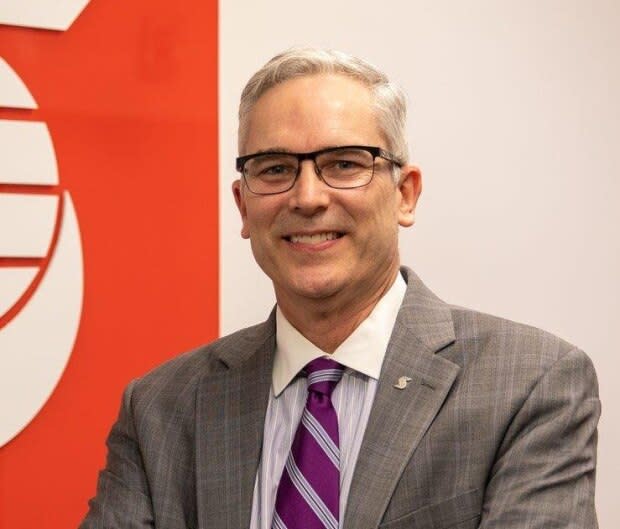'We're so isolated': Human trafficking survivors often burdened with debt, financial fraud
Maya Casanova says when she was a victim of domestic sex trafficking, she felt so alone that she couldn't even really consider what her future would look like.
"We're so isolated, we kind of forget there even is a world," she told CBC News.
Feb. 22 is recognized in Ontario as Human Trafficking Awareness Day.
It's a crime that continues to be prevalent across the country, police say. Traffickers often recruit vulnerable young women on social media. Among many challenges survivors face after they get away from their traffickers is accumulated fraudulent debt or a lack of financial literacy.
Casanova, now 20, says she was too young to have a credit card when she was trafficked, so she didn't have any debt on paper. But she was often told she "owed" people and felt that burden follow her after she left and started rebuilding her life.
"You're walking around with a target on your back," she said.
"You walk around scared all the time that they're going to pop up around the corner."
Casanova says her trafficker took charge of her money and she had to learn all about banking and financial literacy on her own.
"A lot of us get out and we don't even know how to do simple things," she said.
"I remember not knowing when I should eat something, when to go to bed. You are so used to being told what to do."
Banks, not-for-profits helping survivors
Stuart Davis, the global head of financial crimes risk management for Scotiabank, says the company has been part of a pilot called the Financial Access Project, which works with survivors of human trafficking in Canada.
Scotiabank partnered with Deborah's Gate — part of the Salvation Army's anti-human trafficking programs — and is so far working with five survivors.
"All of this is done with sensitivity by dedicated branch personnel," Davis said.

The pilot includes unlimited chequing and savings accounts that are free for one year.
"Some of these individuals have maybe never been in a bank because they're victimized at a young age," Davis said.
"Others are in situations where their personal lives were taken over by their trafficker and they have to restore their lives and confidence and do traditional banking."
Financial literacy assistance, including an overview of the fundamentals of banking, is also included. Davis says another benefit is that the survivors are able to develop a "personal relationship" with the bank staff they're working with.
Meanwhile, Project Recover aims to help survivors with the credit issues they may face.
Executive director Richard Dunwoody explains in some cases the victim isn't aware the trafficker or an accomplice is using their information and identification for purchases, credit and loans.
In other cases the trafficker physically forces the victim to apply for credit or pay for things.
"The trafficker doesn't want association with the criminal activity," Dunwoody explained.
"So credit cards used for hotels or car services, moving their victim from one city to another are all done in the victim's name."
He says in some cases the credit problems the victims weren't aware of prevents them from getting housing or an education, and that's when Project Recover works to help them move forward.
"We go through all the credit records on their credit report and we build a case to take to each individual creditor to say, 'This was fraud and lets remove it from their credit file.'"
Dunwoody says removing that credit or the charges is also important for the survivor's mental health.
"If it was there they would have to continually be reminded of their exploitation," he said.
Recruitment happening on social media: police
Det. David Correa, with the Toronto Police human trafficking enforcement team, says it's a very challenging crime to deal with.
"You're dealing with a lot of trauma, a lot of domestic violence undertones and sexual exploitation," he said.
He says there is often a misconception that sex trafficking is an international problem, but in reality most investigations involve women born and raised in Canada.

"A big portion of them are underage," he added.
Correa says police are finding there's a trend where young people are being recruited into sex trafficking through social media.
"If there's one message I want to get out into the world it's that if you have young children spending time on their phones, be mindful of who they're communicating with, what kinds of images they are posting and sharing," he said.
"If they're vulnerable and there's no parental supervision things can go awry."
Casanova commends the efforts to help survivors financially, knowing first-hand the challenges of rebuilding a life after being trafficked.
She's studying child and youth care at George Brown College and hopes to one day work with youth who have mental health and addiction issues, as well as victims of trafficking.
"I'm feeling really excited and hopeful about my future."

